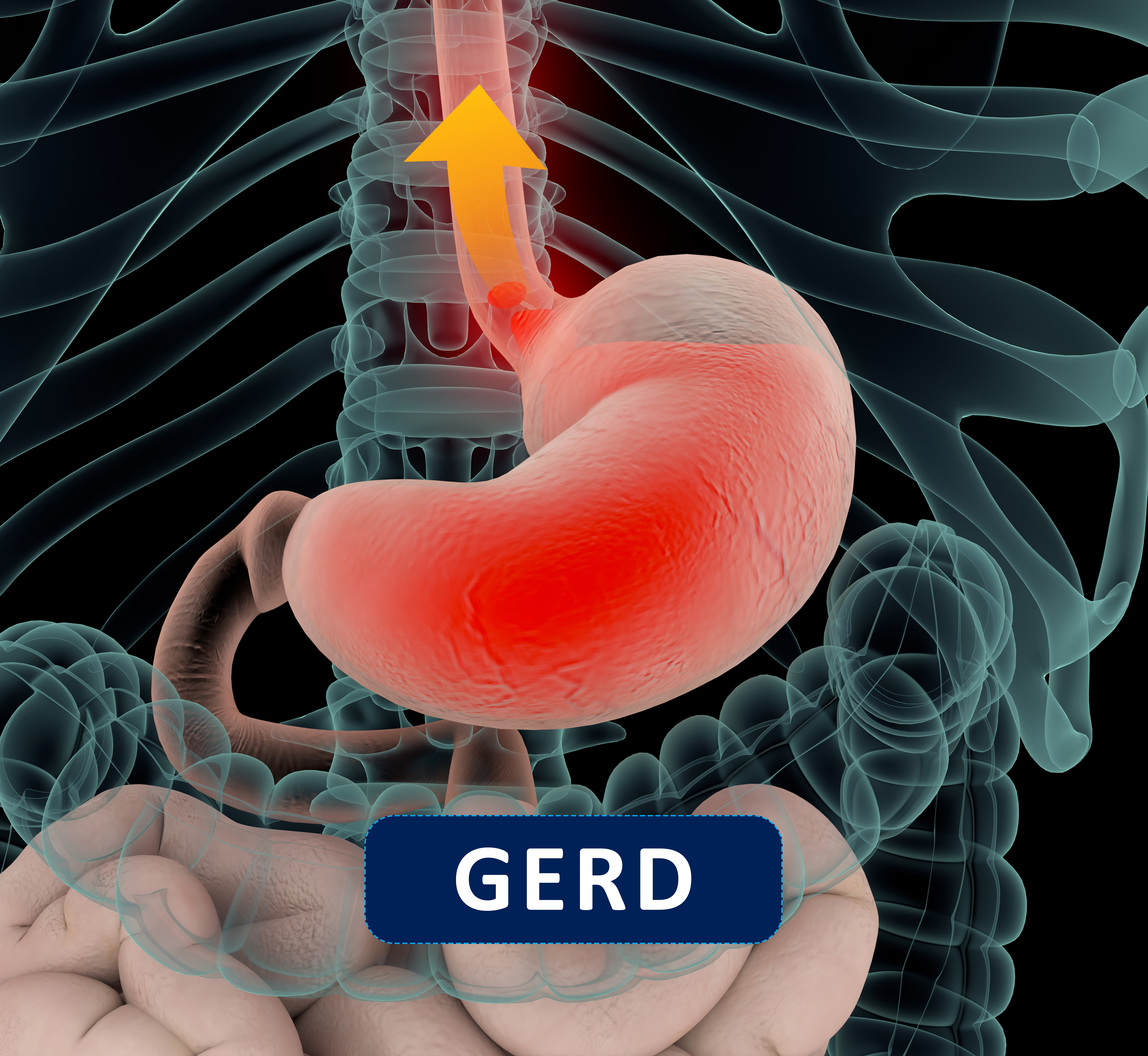
Have you ever experienced heartburn? That burning sensation right in the upper middle part of your stomach? You may have constant discomfort from, or you may only experience it occasionally after a particularly indulgent meal. Even if you don’t have issues with heartburn, you probably know someone who does, since about 40 percent of the U.S. population suffers from it.
What is Heartburn Anyway?
The medical term for heartburn is gastroesophageal reflux disease, or GERD. It occurs when the acid that is normally present in the stomach to help digest food backs up into the esophagus. The esophagus is the “swallowing tube” that connects the mouth to the stomach.
Acid is not normally present in the esophagus, so its lining gets irritated when this back-up happens, leading to the symptoms of GERD.
These symptoms include the classic feeling of heartburn most of us have experienced at least once or twice in our lives. It can also cause excessive burping, a bitter taste in the mouth, and pain in the upper abdomen. In more extreme cases it can even irritate parts of the respiratory tract, causing coughing, wheezing, chest pain, a hoarse voice. It can even cause a runny nose!
In some people it causes chronic bad breath and excessive salivation. It can even be responsible for the annoying “globus sensation.” This is when you feel like there is food stuck in your throat that you can’t swallow away.
How Do I Know If I Have GERD?
Your physician can diagnose GERD based on your history and symptoms. There isn’t a particular test that is used to diagnose it.
However, you or someone you know may have had an EGD – esophagogastroduodenoscopy – because of their GERD symptoms. This is a test performed by a gastroenterologist who threads a camera down the esophagus and into the stomach and first part of the small intestine.
This test is not used to diagnose GERD, because people with GERD often have a completely normal EGD. Instead the EGD is used to rule out other issues, like esophageal cancer, that may cause similar symptoms.
But because the risk of such a cancer is low, an EGD isn’t always necessary. Your physician will evaluate your risk factors and symptoms and make a recommendation about whether an EGD is necessary. Usually there are other concerns such as weight loss, anemia, or difficulty swallowing that will prompt the physician to order the test. And even if an EGD is recommended, chances are still good it’s the more common GERD causing the symptoms, and not the unusual esophageal cancer.
What is the Treatment for Heartburn? Is it Safe?
The primary treatment is a proton pump inhibitor (PPI). These common medications go by familiar names like Prilosec and Nexium. They decrease the acid secreted by the acid-producing cells in the stomach, and they work very well at relieving heartburn symptoms.
There are some observational studies that suggest long-term use of PPIs is connected to some negative effects.
One potential risk is that it disrupts absorption of nutrients such as calcium, magnesium, and Vitamin B12. The other risk is that it can disrupt the balance of normal bacteria in the stomach. By changing the acid level, or pH, in the stomach, the environment begins to favor a different set of bacteria, allowing overgrowth of harmful bacteria and loss of beneficial bacteria.
To be clear, the research studies show a connection but not a causation between long term PPI use and these negative effects, so more research is needed. But because of the potential risk, the FDA recommends using a low dose of over-the-counter PPIs for up to a maximum of 14 days no more than three times per year.
Lifestyle Changes Can Ease Symptoms of Heartburn
In the meantime, there are lifestyle changes that can help with the symptoms. First, you can keep a record of the foods you eat and your symptoms to try to identify any relationship. Foods that cause problems for one person may not cause problems for someone else, so this is an individual exercise. You may have already noticed that your symptoms flare up after consuming certain ingredients, so you have a headstart on correcting the problem.
Second, you can try to lose weight. The incidence of GERD is much higher in people who are classified as obese, and weight loss has been shows to improve or eliminate symptoms. It is even beneficial for those whose body mass index (BMI) is classified as normal!
If you are struggling with symptoms of heartburn, please make an appointment to see your healthcare provider. They will make recommendations for further testing and appropriate steps to minimize symptoms. There is no need to be uncomfortable when you don’t have to be!

